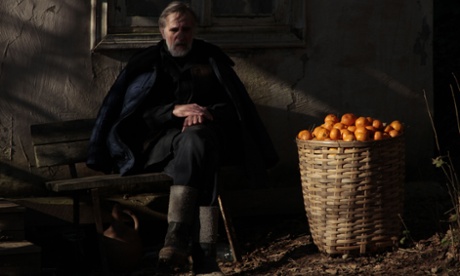Jonas Carpignano struck gold with the non-professional cast of his new movie, set among the Roma gypsy community in Calabria – and especially with his terrific teenage lead, Pio Amato. It has been called a resurgence of neorealism with echoes of De Sica and Visconti; Martin Scorsese is executive producer, and you can see his influence in the vibrancy of the family meal scenes. But maybe it’s more an inspired naturalism or instinctualism. There is something euphoric, but also sad, about watching an unschooled performer dominate through some mysterious and serendipitous rightness in the matching of face, performer and material. Will he ever be as good again – that’s if he wants to be an actor? Will life itself ever seem as real to him as this? (Carpignano developed the movie from his earlier short of the same name and his debut feature, Mediterranea, from 2015.)
Amato plays a smart, scrappy teenager in a sprawling clan from Ciambra – essentially playing themselves and individually introduced in the film’s amazing funeral scene – in Calabria’s Gioia Tauro province. They are up to various thieving exploits, which involve an open-ended turf war with the “Italians” or ′Ndràngheta mobsters. The police are always showing up, as well as power-company officials following the family’s crude attempt to bash the electricity meter.
When Pio’s father and big brother are taken to prison, Pio experiences a glorious freedom and a chance to prove himself as man, breadwinner and, of course, professional thief. He pinches cars (including, in one outrageous sequence, a Carabinieri police car) and luggage from trains. He fences stuff through the “Africans” – the tented migrant community from Burkina Faso and Ghana – and Pio has a poignant friendship with Ayiva (Koudous Seihon).
This connection is tested in a crisis of loyalty, and my minor quibble is that its aftermath is perhaps not shown as clearly as it might be. But what a rush of storytelling energy and style.











